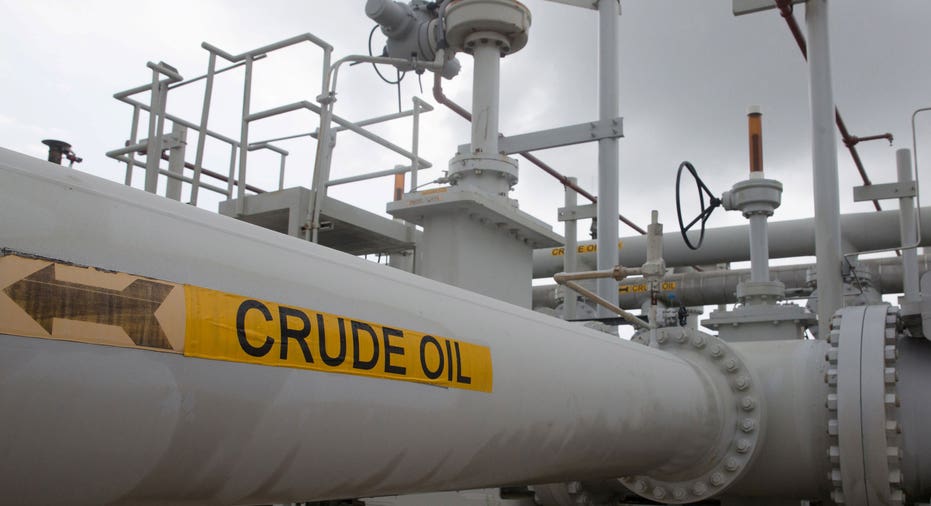Oil Extends Rally to 5-Week Highs on Talk of Producer Action

Oil prices hit five-week highs on Monday, gaining about 10 percent in a three-day rally as speculation intensified over potential producer action to support prices amid a crude glut.
Data from market intelligence firm Genscape estimating a draw of more than 350,000 barrels at the Cushing, Oklahoma delivery point for U.S. crude futures last week added to the bullish sentiment, said traders who saw the data.
Brent crude rose $1.08, or 2.3 percent, to $48.05 a barrel by 11:07 a.m. EDT (1507 GMT), after rising to $48.10 earlier, its highest since July 7. Brent has gained about 10 percent cumulatively in the past three sessions, its most in such a stretch since May. Since the start of August, it is up 12 percent.
U.S. West Texas Intermediate (WTI) crude gained $1.06, or 2.4 percent, to $45.55, after rallying earlier to $45.61, a peak since July 21. WTI has gained nearly 10 percent on the month.
Members of the Organization of the Petroleum Exporting Countries are to meet on the sidelines of the International Energy Forum, which groups producers and consumers, in Algeria from Sept. 26-28.
Russian Energy Minister Alexander Novak bolstered hopes on Monday that oil producing nations could take action to stabilize prices, telling a Saudi newspaper that his country was consulting with Saudi Arabia and other producers to achieve market stability.
"With Russia joining the chorus, an array of bullish oil ETFs saw a sizeable influx of capital that lifted crude values by more than $5 a barrel off recent lows," said Jim Ritterbusch of Chicago-based oil markets consultancy Ritterbusch & Associates.
"While we see very little possibility of an actualization of curtailed OPEC output, there will likely be enough chatter during the next five to six weeks to deter selling in allowing WTI to gravitate at around the $45 area, at least through the second half of this month," he added.
But other analysts were skeptical that the rally would continue.
"In our view a renewed price correction cannot be ruled out if market participants start focusing on the supply side again, for the latest drilling activity figures in the U.S. cast doubts that the oversupply is really being eroded," Commerzbank analyst Carsten Fritsch said in a note.
There are also doubts that Saudi Arabia and other major OPEC members such as Iran will put aside a market share battle in order to prop up prices.
On the demand side, the world's three biggest economies - the United States, China and Japan - all published downbeat economic data between Friday and Monday that could signal an erosion soon in oil demand.
(By Barani Krishnan; Additional reporting by Libby George inb LONDON and Henning Gloystein in SINGAPORE; Editing by David Evans and Marguerita Choy)



















